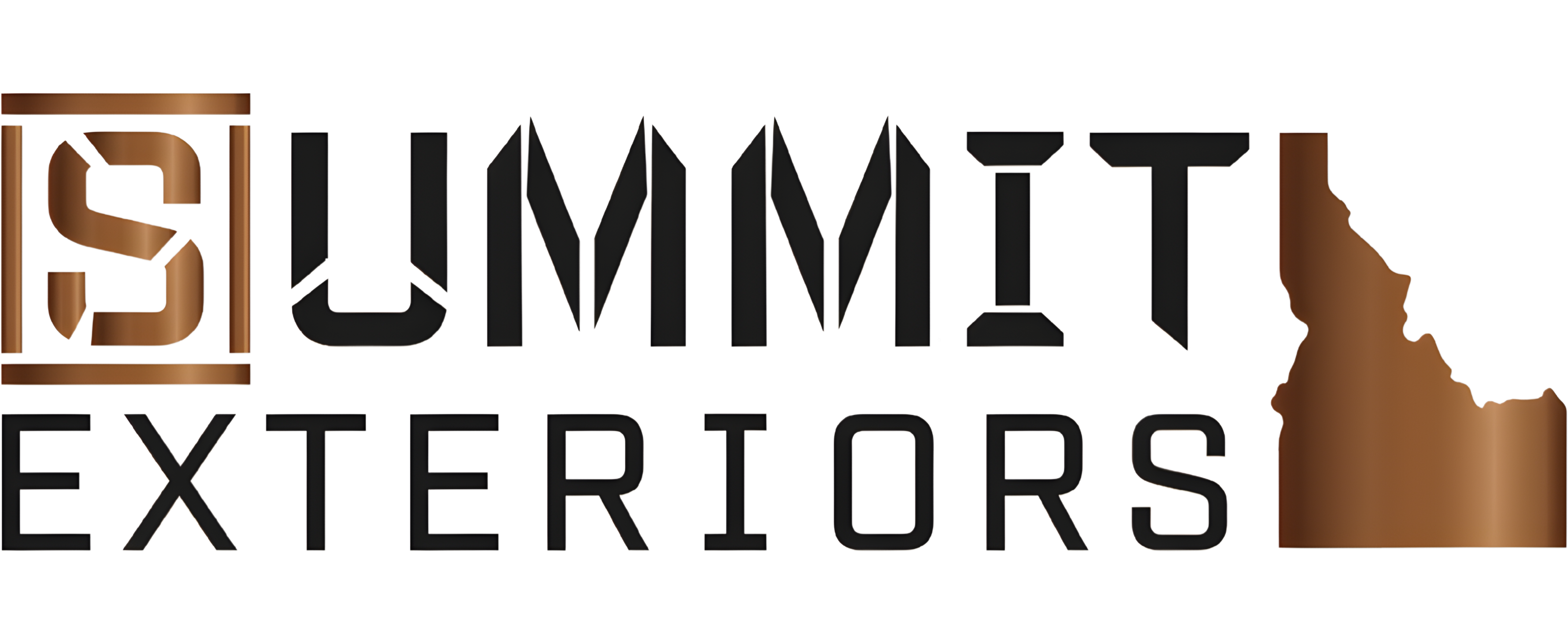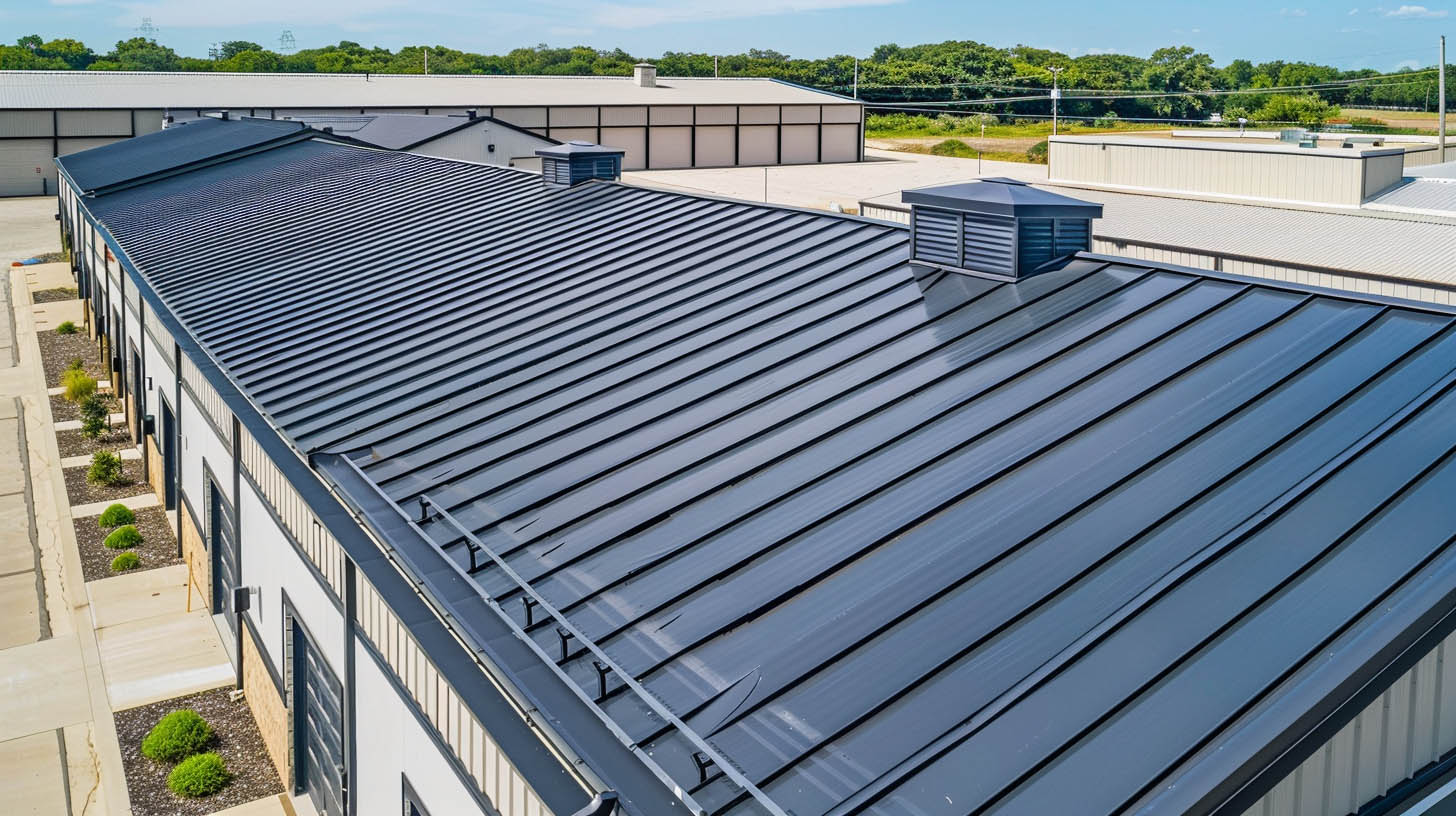Commercial metal roofing represents a pinnacle of durability and longevity in roofing technology. At Summit Exteriors, we have honed our expertise in installing various types of metal roofing systems, catering to the specific needs of commercial and industrial buildings. This guide explores the nuances of metal roofing systems, their benefits, and the critical considerations involved in choosing the right roofing solution for your building.
Understanding Commercial Metal Roofing
Durability and Performance
Metal roofs are renowned for their exceptional durability and ability to withstand harsh weather conditions. Suitable for a wide range of buildings, from large manufacturing facilities to airport hangars, metal roofing systems excel in environments where other materials may falter, particularly where exposure to corrosive chemicals is a concern.
Longevity and Cost-Effectiveness
Despite a higher initial cost—starting at approximately $8 per square foot—metal roofs offer a lifespan of 40 to 50 years with minimal maintenance. This longevity makes metal roofing a cost-effective solution over its lifetime, comparable to TPO or PVC roofing in terms of total cost of ownership.
Key Components of Metal Roofing Systems
Material Selection
Metal Types: Options include steel, weathering steel (Cor-Ten), aluminum, and copper, each offering different aesthetics and performance characteristics. Steel is the most cost-effective, while copper provides unparalleled elegance and longevity.Panel Thickness and Fastening: Panel thickness varies and is typically measured in gauges; the thicker the panel, the more durable the roof. Roofing system fasteners can be exposed, concealed, or utilize a standing seam system that requires no through fasteners, enhancing the roof’s weather resistance.
Architectural Considerations
Roof Slope: Metal roofing systems are suitable for low slope (up to 2:12) and steep slope (above 2:12) applications. The slope of the roof influences the type of metal roofing system used and its installation method.Solar Reflectance and Thermal Emittance: These properties determine the roof’s ability to reflect solar energy and emit absorbed heat. High solar reflectance and thermal emittance can reduce cooling costs in the summer but may increase heating costs in the winter.
Aesthetic Options
Visual Appeal: Metal roofs offer significant aesthetic flexibility, enhancing the building's exterior with a variety of colors and finishes. They can be designed to stand out or blend into a historical or urban landscape, making them a popular choice for visible, architecturally significant buildings.Installation and Maintenance
Expert Installation
The installation of a metal roof involves meticulous attention to detail, from ensuring proper alignment and fastening of panels to applying appropriate sealants and finishes. Summit Exteriors excels in these precise techniques, ensuring each installation meets high standards of quality and durability.
Regular Maintenance
While generally low maintenance, metal roofs still benefit from regular inspections and timely repairs to address any potential issues, such as seam failures or corrosion, ensuring the roof maintains its integrity and performance throughout its lifespan.
Conclusion
Choosing a metal roofing system involves careful consideration of various factors, including the building’s structural requirements, environmental conditions, and budgetary constraints. At Summit Exteriors, located in Coeur d'Alene, ID, we provide comprehensive consultation and installation services, ensuring that each client receives a roofing solution that not only meets but exceeds their expectations. With a commitment to excellence and a focus on sustainable, durable roofing solutions, we help our clients make informed decisions that optimize the value and performance of their roofing investments. Contact us today to discuss how a metal roofing system can benefit your commercial or industrial building.



